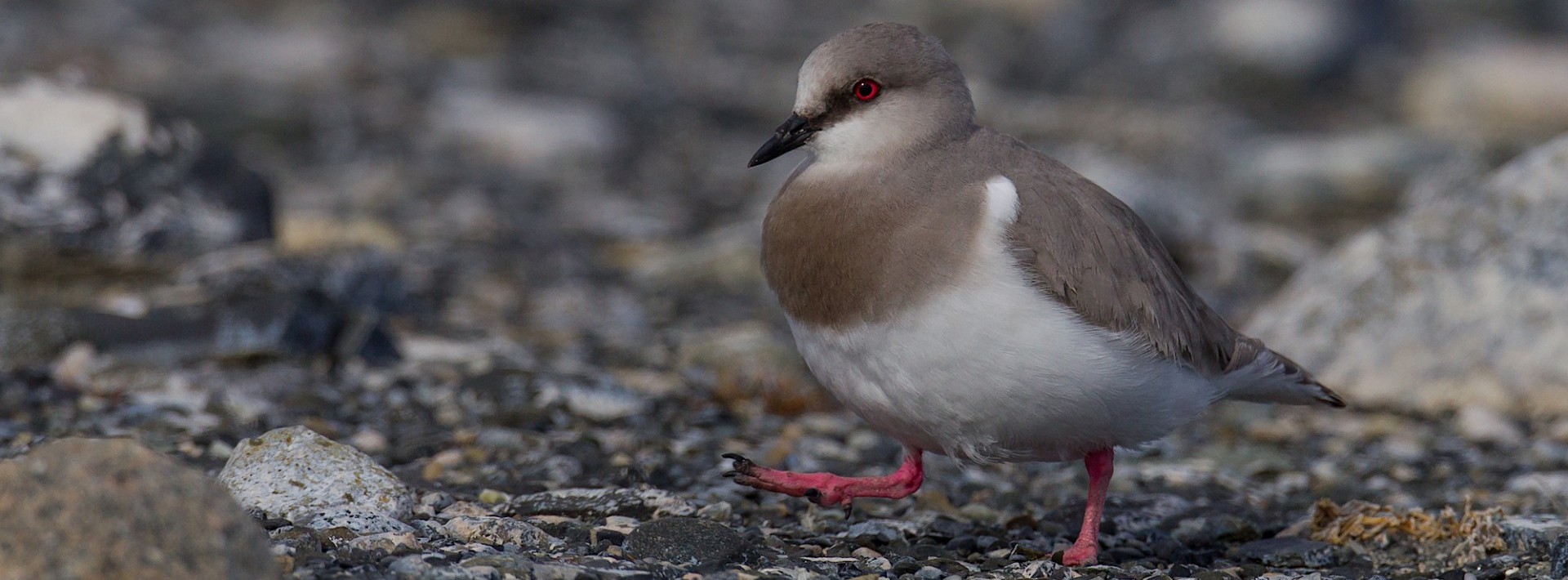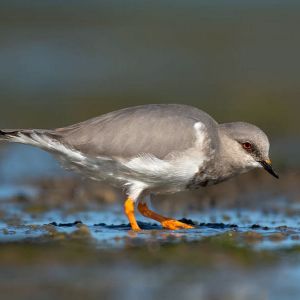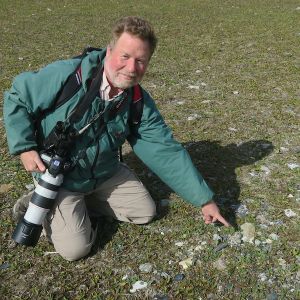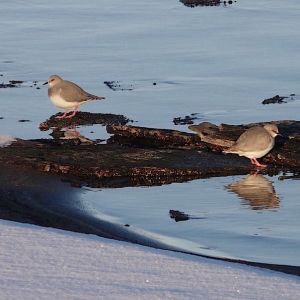In Brief
Conservation Value:
This species has a small global poplution once estimated to be in the thousands (7,000+) but surveys in 2021-22 indicate that the population may be less than 1,000. A comprehensive survey of known breeding sites recorded just 264 individuals, while the following wintering area surveys recorded 300 individuals (including 55 juveniles). The species is the sole member of the family Pluvianellidae, increasing its conservation significance..
Threats:
Threats include reduced habitat quality of breeding areas due to sheep farming and the use of water bodies as watering holes; trampling of nests by cattle; disturbance by dogs and the use of all-terrain vehicles on the banks of lagoons. Indirect human impacts include the degradation and desertification of the Patagonian steppe due to overgrazing and climate change. Decreases in annual rainfall attributed to climate change may negatively affect reproductive success. Finally, there appears to be decreased quality of the wintering habitat near the city of Río Gallegos, with possible contamination from urban effluents and higher numbers of dogs. An emerging threat is the installation of large wind farms in current and potential sites for plovers.
Actions & Results:
During the annual breeding season (November to February), "Plover guardians" survey and protect nests at key sites for the species, subject to accessibility, weather conditions, and presence of the species.
By December, 15 to 30 pairs are located at the remote lakes on the Buenos Aires Lake Plateau.
In addition to the presence of guardians, camera traps were placed at these sites to assist in the collection of information needed to better understand threats. In 2024, guardians surveyed over 300 lakes and counted 80 adults with eight nests with eggs. Experimental "predator exclosures" made of wire fence were placed over six nests. The exclosures have openings large enough to allow passage of plovers through the mesh. Three young successfuly fledged. This mesh size excludes most local predators are placed over some nests and this also protects eggs from other threats such as trampling by sheep, livestock, or ATVs.
As part of further research to better understand the species' movements, some adults and chicks are banded and tagged with Lotek Solar trackers that emit signals every 10 days.
Goal:
To reverse the decline of the Magellanic plover (Pluvianellus socialis). (This project is conducted by many of the same field staff concurently protecting breeding Hooded Grebes in the same area.)
This project is fully funded at present.
(Support is welcome for other projects)
Location:
Buenos Aires Lake Plateau, Argentina
Size of Area Involved:
300+ lakes are surveyed across 1,000 linear kilometers of area.
Project Field Partner:
Our partner is the Argentinian conservation organization Aves Argentinas.
Our Investment to Date:
Cost (2022-2023): CA$60,493
For 2024 on, see combined cost info for Hooded Grebe project
Gallery
Click to enlarge an image
In More Depth...
International Conservation Fund of Canada Copyright © 2009-2025
Registered Canadian charity # 85247 8189 RR0001





